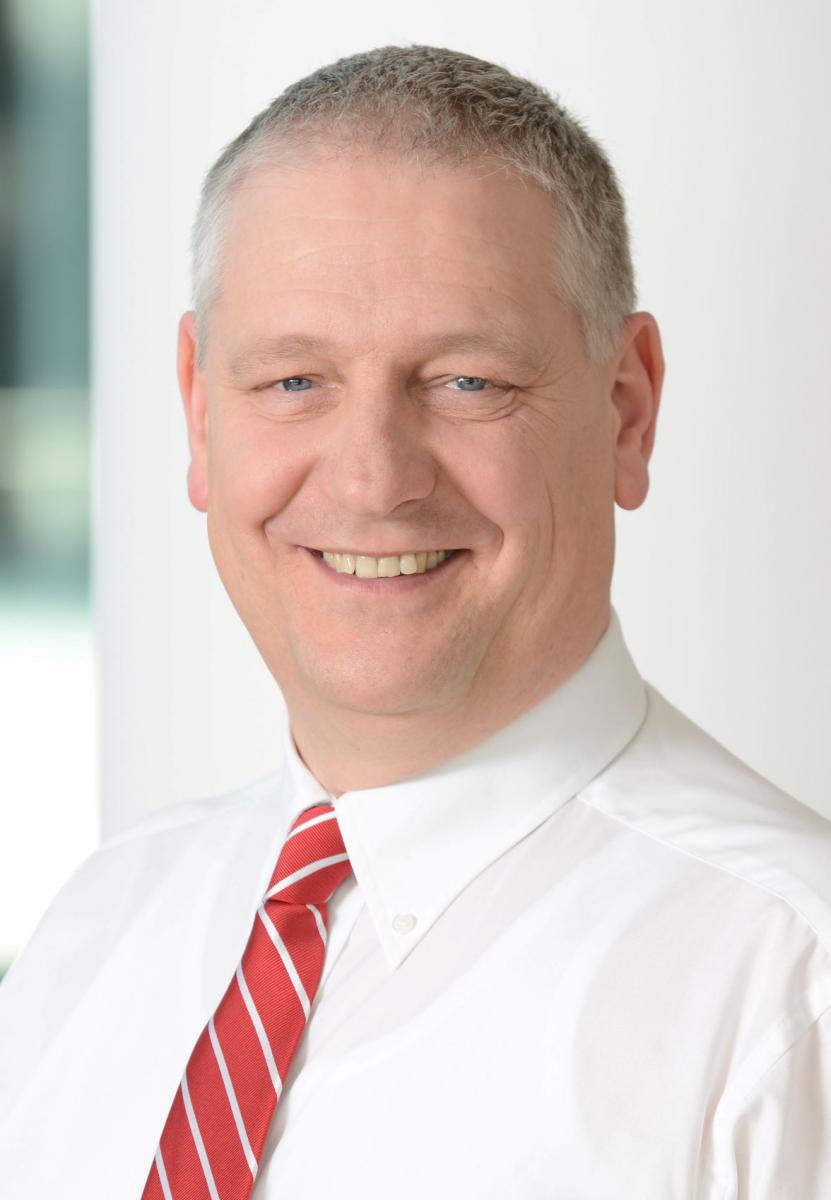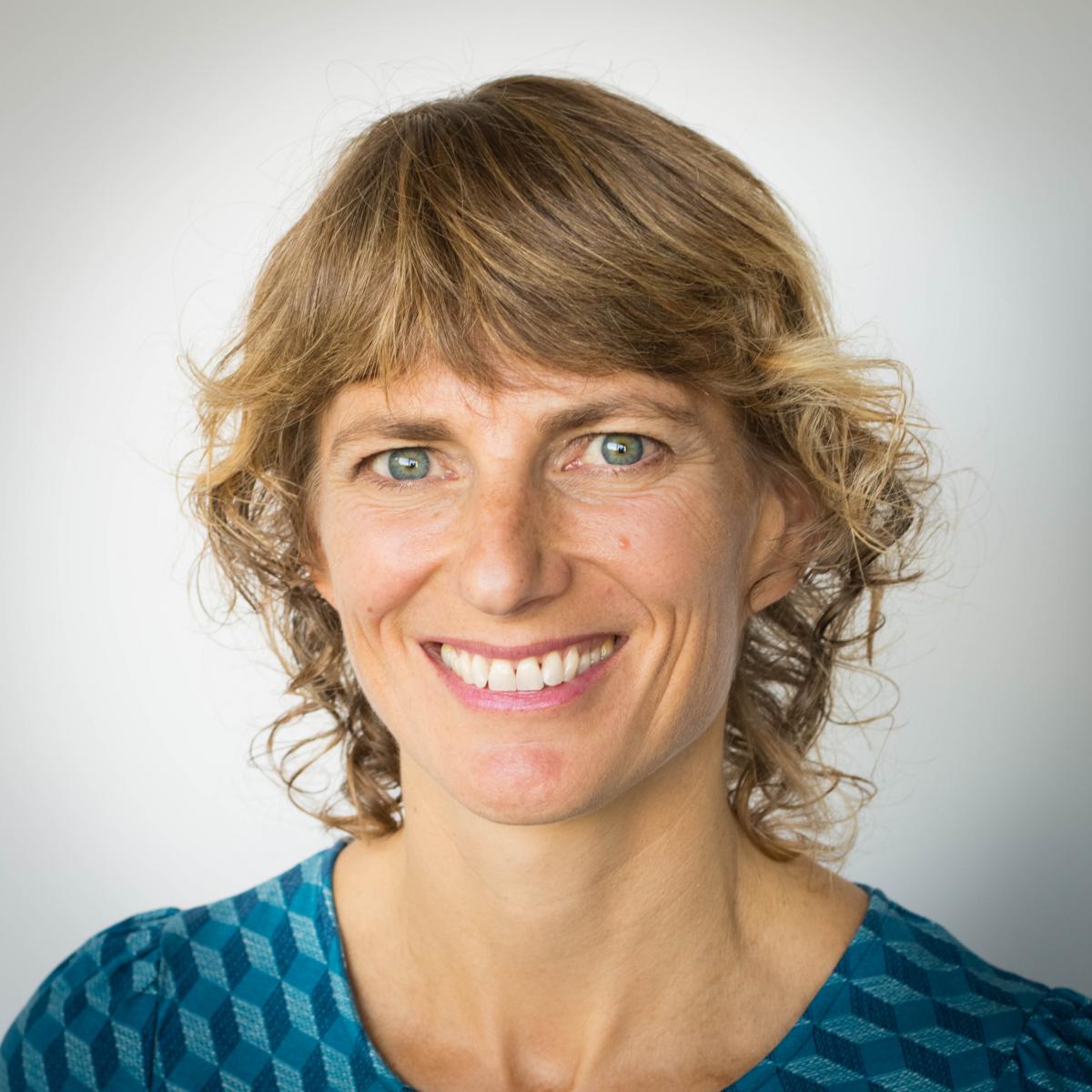How and why did your partnership get started?
HV: At Solidaridad, we’re always seeking to enter into partnerships with companies who have a genuine desire to implement progressive and sustainable strategies for palm oil and palm kernel oil. That’s why our team was excited when the opportunity to work with Henkel came along in 2012. Henkel has a long tradition of leadership in sustainability and we saw a lot of potential to make a meaningful impact.
TMK: Finding the right balance between business success, environmental protection and social responsibility has been a key part of Henkel’s culture for decades. We wanted to join forces with a forward-looking partner who could help us find that balance in the future. Solidaridad has a track record of innovation in fostering sustainable development, so we were enthusiastic about what we could achieve together.

Thomas Müller-Kirschbaum, Head of Research and Development at Henkel’s Laundry & Home Care business unit
What values do Henkel and Solidaridad share – and what are the topics where you have different opinions?
HV: As Thomas has just said, I think we share a strong focus on innovation. For 50 years, Solidaridad has been accelerating global sustainable and inclusive development. That has been possible because we take a solution-oriented approach, we think internationally and we want to shape the future by learning from the past. These are all things we have in common with Henkel.
TMK: I’d only add that I think it’s more important to talk about different perspectives than different opinions. Henkel and Solidaridad have been around long enough to know that opinions change over time – knowledge and actions are what really matters. Our organizations have chosen to work together because we both want to gain a more comprehensive understanding of the palm oil value chain and take action to support progress on the ground.
How would you summarize each organization’s position regarding sustainable palm oil?
HV: Henkel recognizes its responsibilities regarding the purchase and use of ingredients based on renewable raw materials. The company is fully committed to driving progress toward sustainable practices in the palm oil industry – and along the value chain – by collaborating with representatives from across the sector. Of course, public opinion about palm oil is extremely negative and it’s not always easy to make the case for sustainable palm oil in the face of strong media criticism or even calls for a global ban. In this context, it’s particularly striking that Henkel places a strong focus on measurable outcomes that clearly demonstrate its contribution to social and environmental progress.
TMK: Our colleagues at Solidaridad believe palm oil has the potential to provide a sustainable supply of vegetable oils to meet the world’s needs – but that there is a long way to go before achieving sustainability. Their efforts to support progress focus on increasing smallholder participation, reducing environmental damage and bringing people together. What makes them different to other civil society development organizations is that they provide truly country and context-specific solutions that reflect the variety of challenges and opportunities across the regions and countries where this crop is grown.
What are the best examples of your partnership’s most successful projects?
HV: Our work in Honduras had a remarkable impact. Together, we supported 17,500 small farmers and workers through a three-year programme that provided training in how to comply with criteria for RSPO certification. By the end of 2015, the farmers and companies who participated had produced 500,000 tons of sustainable palm oil and palm kernel oil, and their yields had increased by over 25 percent. The project shows the effectiveness of jurisdictional and landscape approaches, which we aim to build on going forward.
TMK: In 2015, Henkel set a target to increase the supply of sustainable palm oil and palm kernel oil on the market by a volume equal to our total demand by 2020. Partnering with Solidaridad enabled us to achieve this in September 2016 – three years ahead of schedule. In fact, we recently recognized the success of our partnership with Solidaridad by placing its logo on the packaging for our new brand Nature Box, along with the message: We support local farmers.

Heske Verburg, Managing Director of Solidaridad in Europe
What projects are you currently working on together?
HV: We’re working on seven projects that are reaching farmers in every major producing region – including Colombia, Ghana, Honduras, Indonesia, Mexico, Nicaragua and Nigeria. We’re contributing to the increased availability of sustainable palm oil and palm kernel oil on the market, while also enabling smallholders to certify their crops, increase productivity and improve their livelihoods. These contributions all help drive progress toward the United Nations Sustainable Development Goals.
TMK: Together, we’re open to facing new challenges and learning from them. We’ve regularly piloted innovative approaches like the landscape approach, rural service centres, access to finance and digital tools. In Colombia, for example, our project uses an innovative digital platform called Farming Solution. It was developed by Solidaridad and we’re exploring its potential to improve the lives of thousands of smallholder oil palm farmers and workers in some of the country’s poorest regions.
What are the future goals for your partnership and how do you expect it to develop in the future?
HV: Our overarching goal is to accelerate the transition to a truly sustainable palm oil and palm kernel oil supply chain. At Solidaridad, we believe the only way to achieve this is for companies to support progress on the ground – and include smallholders and workers in this process. Henkel has shown that it understands this. That’s why we expect our partnership to make a significant impact in the future. We’re planning to launch new projects together that focus on a more integrated jurisdictional approach and broader collaboration that take advantage of what we’ve learned from our work on earlier projects.
TMK: Henkel has a clear set of targets covering palm and palm kernel oil. On top of our determination to achieve these targets, I’m excited about how our partnership with Solidaridad will embrace new topics. For example, our projects are placing an increasing focus on reducing gre
enhouse gas emissions in the palm value chain and supporting smallholders in adapting to climate change. Conserving and restoring forests can mitigate climate change by absorbing carbon dioxide, while helping smallholders to increase their incomes can help make them more resilient against the impacts of climate change.
What advice would you give to organizations which are still developing their approach to palm oil?
HV: I’d tell those organizations to reach out and collaborate with representatives from across the sector – from plantations, smallholder farmers and palm oil mills through to governments, non-governmental organizations and suppliers. Henkel is a leader in sustainability and its commitment to collaboration is a great example to follow. Together, we can achieve far more than by acting alone.
TMK: Heske is absolutely right. Partnerships enable individual organizations to strengthen the impact of their contribution to sustainable practices in the palm oil industry – and open up opportunities for companies that are at the end of the value chain to make a positive impact on the ground.
Read more about Solidaridad’s programmes in palm oil.
